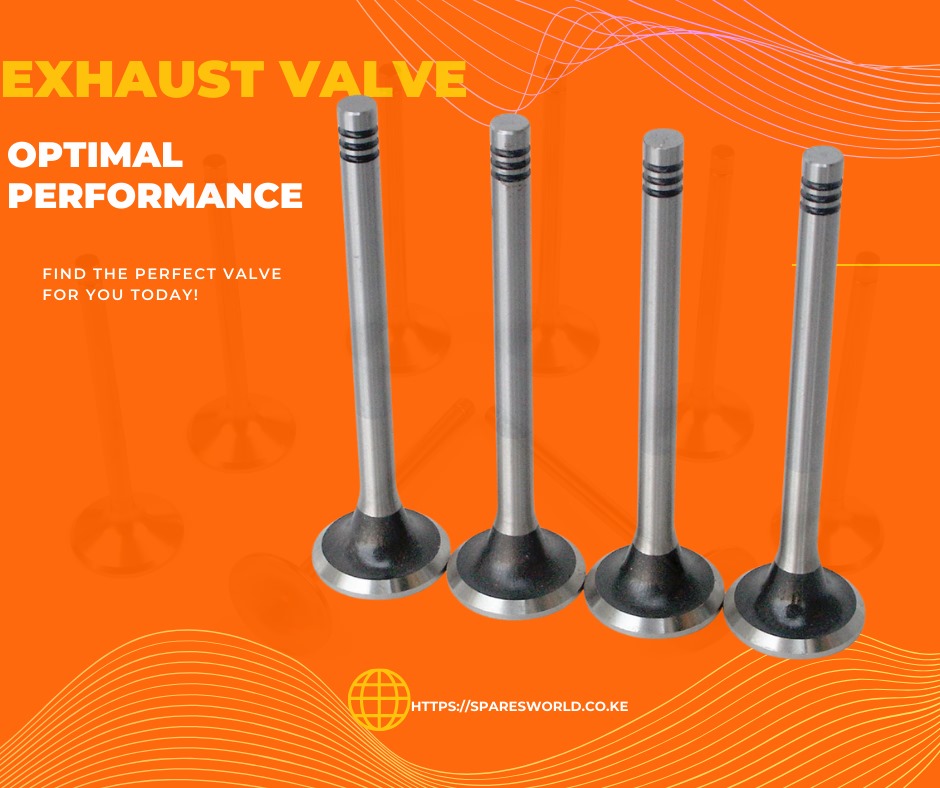Exploring the Importance of Exhaust Valves

Dive deep into the pivotal role of exhaust valves in engine performance and longevity.
Understanding Exhaust Valves: Form and Function
Exhaust valves are critical components in an internal combustion engine. They are designed to open and close at precise times to allow the expulsion of burnt gases from the combustion chamber. Typically made from heat-resistant materials like steel or nickel-based alloys, exhaust valves must withstand extreme temperatures and pressures.
The basic function of an exhaust valve is to provide a pathway for the exhaust gases to exit the cylinder after the combustion process. This not only clears the way for fresh air and fuel to enter the cylinder but also helps maintain optimal pressure levels within the engine. The precise timing of the valve's opening and closing is controlled by the camshaft and is essential for maximizing engine efficiency.
The Role of Exhaust Valves in Engine Efficiency
Exhaust valves play a crucial role in determining the overall efficiency of an engine. When these valves operate correctly, they ensure that the engine can expel exhaust gases quickly and effectively, thereby allowing the engine to take in a full charge of fresh air and fuel for the next combustion cycle.
Properly functioning exhaust valves contribute to better fuel economy and reduced emissions. They help maintain a balanced air-fuel mixture, which is essential for achieving complete combustion. Any malfunction or delay in the exhaust valve's operation can lead to incomplete combustion, resulting in wasted fuel and higher emissions, which ultimately reduces engine performance.
Common Issues and Maintenance Tips for Exhaust Valves
Over time, exhaust valves can experience a range of issues, including wear and tear, carbon buildup, and even valve seat erosion. These problems can lead to reduced engine performance, poor fuel efficiency, and increased emissions.
Regular maintenance is vital for keeping exhaust valves in optimal condition. This includes periodic inspections, cleaning to remove carbon deposits, and ensuring that the valves are correctly seated. In some cases, it may be necessary to replace worn-out valves to maintain engine performance. Using high-quality fuel and oil can also help prolong the life of exhaust valves by reducing the formation of harmful deposits.
Technological Advancements in Exhaust Valve Design
Modern advancements in exhaust valve design have significantly improved their performance and durability. Innovations such as variable valve timing (VVT) allow for more precise control over the valve's operation, optimizing engine performance across different driving conditions.
Materials science has also contributed to the development of more resilient valve materials that can withstand higher temperatures and pressures. Coatings and surface treatments have been introduced to reduce wear and enhance the valve's lifespan. These technological advancements not only improve engine efficiency but also contribute to reduced emissions and better fuel economy.
How Exhaust Valves Impact Overall Vehicle Health
The condition of exhaust valves has a direct impact on the overall health and longevity of a vehicle. Faulty or poorly maintained exhaust valves can lead to a range of engine problems, including misfires, loss of power, and increased fuel consumption.
By ensuring that exhaust valves are in good working order, vehicle owners can enhance their engine's performance, improve fuel efficiency, and reduce harmful emissions. Regular maintenance and timely replacement of worn-out valves are essential practices for maintaining the overall health of the vehicle and ensuring a smooth, reliable driving experience.

 Loading..
Loading..